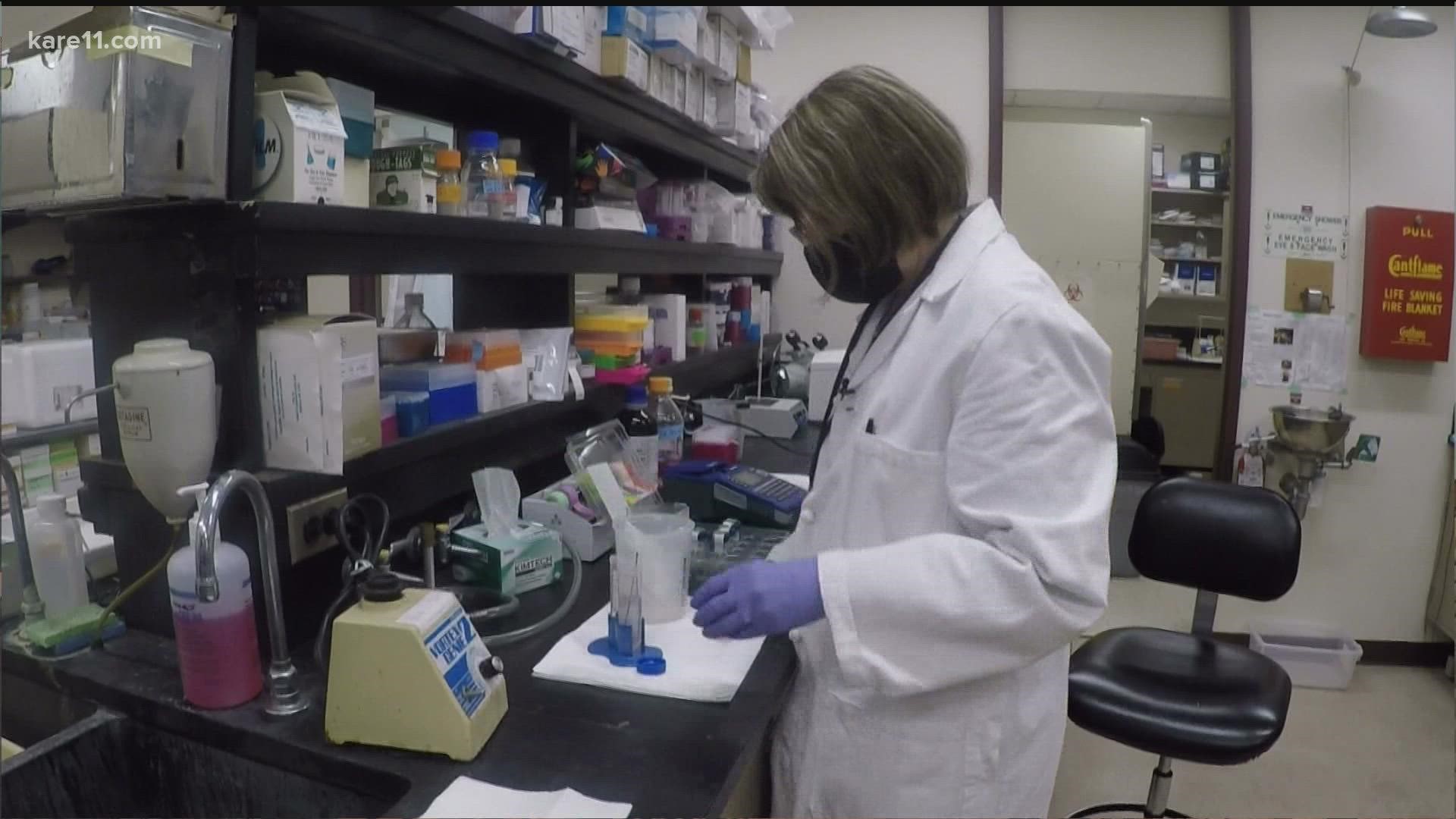MINNEAPOLIS — Research is underway at the University of Minnesota Medical School that aims to create the first early detection test for ovarian cancer.
While women can get a mammogram to check for breast cancer and a pap smear to look for cervical cancer, currently there is no routine exam for ovarian cancer.
"The general population of women are not screened for ovarian cancer at all," said Dr. Amy Skubitz.
Skubitz found a new way in which pap test samples, already used to detect cervical cancer, can also be used to detect proteins present in ovarian cancer.
"If we can incorporate the pap test from being just cervical cancer into a [test for] cervical cancer and ovarian cancer, all women could be screened simultaneously for both cancers. So that's our hope," she said.
Creating a routine exam to detect ovarian cancer early is significant, because the disease is often found in a late stage due to its vague symptoms. Things like bloating, feeling full, or changes in urination often can be dismissed.
"There really are very few symptoms that are specific to ovarian cancer," Skubitz said.
According to the Minnesota Ovarian Cancer Alliance, citing data from the National Institutes of Health, 60% of all ovarian cancer cases are diagnosed at Stage 3. The five-year survival rate for Stage 3 ovarian cancer is 39%, compared to more than 90% when found at Stage 1.
Skubitz got into the field of ovarian cancer research after her mother was diagnosed.
"She needed so much surgery and so much chemotherapy," Skubitz said. "Every time I do the research I'm thinking back to my mother, that if there had been an early detection kit for her, they would have found the cancer much sooner [instead of] waiting until it progressed to these late stages."


Dr. Skubitz says it will still be several years before the test is ready.
She has a received a National Institutes of Health (NIH) grant to continue her research for five years.
Additionally, her research has received more than $1 million in funding from the Minnesota Ovarian Cancer Alliance (MOCA), which in 2022 announced a record $1.1 million for research projects centered around fighting the disease.
MOCA has an upcoming gala on April 2 to raise money for work like this. You can register by March 14 or donate here.

